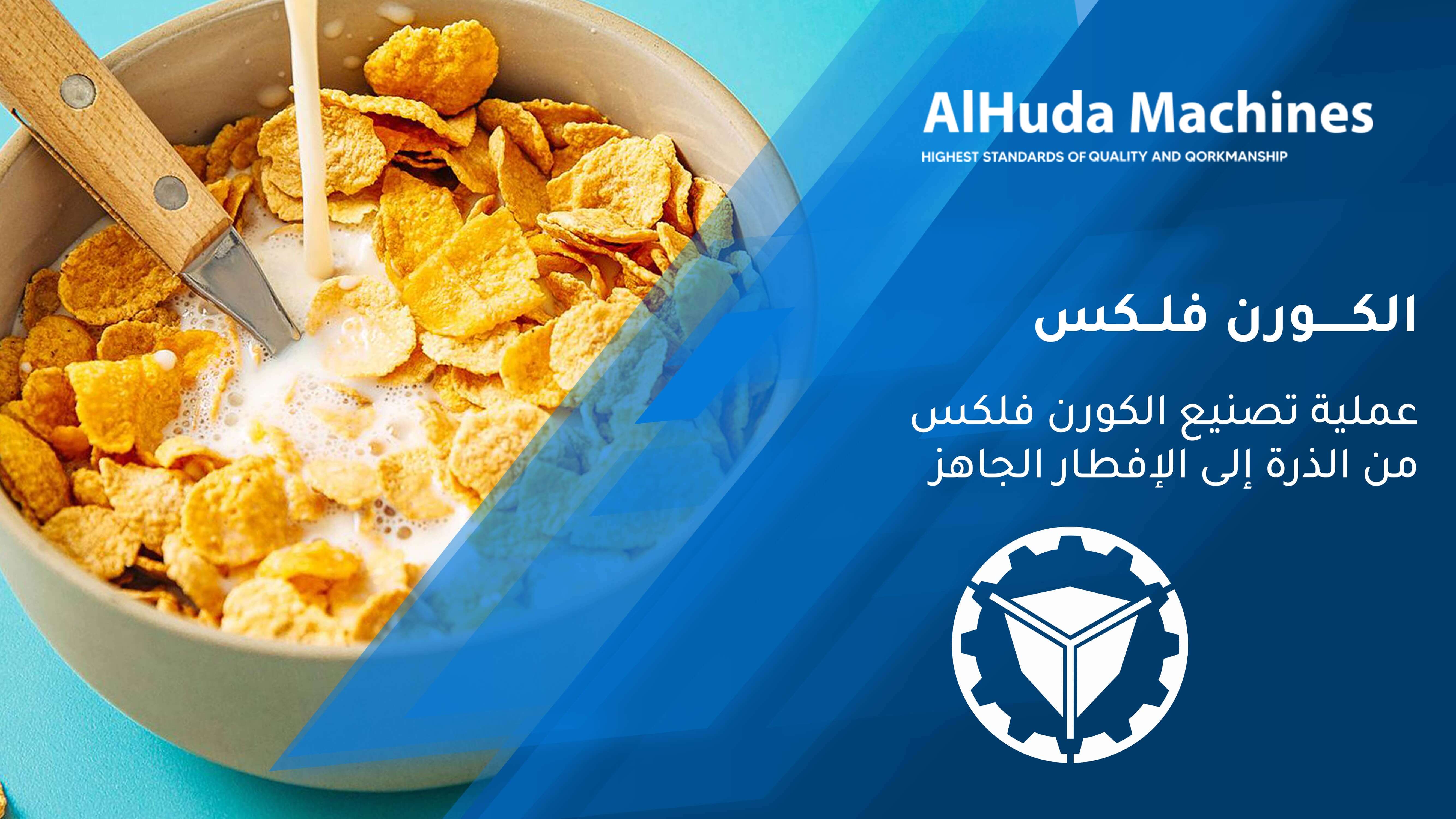
Corn Flakes is a popular breakfast product that is produced from corn grains that are carefully selected and processed with modern techniques to obtain a crispy and granular product. Corn flakes is a popular and popular breakfast product around the world, characterized by its delicious, crunchy taste and high nutritional value. Corn flakes are produced from corn grains that are processed with modern technologies to obtain a granular and crunchy final product that contains many vitamins and minerals important for the health of the body. Corn Flakes is easy to prepare and can be eaten with milk, yogurt or fruits to get a healthy and balanced breakfast for your body. Historically, corn flakes were invented in the United States from corn flakes, and it is a popular and popular breakfast product for many around the world. I indicated that it is produced from corn grains processed with modern technologies, and I also indicated that it contains many vitamins and minerals important for the health of the body. I also indicated that it is easy to prepare and can be eaten with milk, yogurt or fruits, to obtain a healthy and balanced breakfast for the human body. It is worth noting that the history of corn flakes dates back to 1894 when it was invented by the American scientist John Harvey Kellogg, and the idea was born after Mr. Kellogg forgot cooked corn kernels on the shelf in the kitchen for a few days, which made them dry and turn into crispy slices. After trying these slices, Mr. Kellogg decided to produce them commercially and market them as a breakfast product, and thus began his adventure in making cornflakes. Since then, the method of making cornflakes has spread all over the world, and it includes a wide range of different varieties and is stuffed with fruits, chocolate, honey, almonds, and many other ingredients. Thanks to its high nutritional value and delicious taste, corn flakes are an ideal choice for a healthy and balanced breakfast for all family members. Cornflakes production process The method of making corn flakes is characterized by accuracy and modern technologies, as the processed corn grains are transformed into thin slices that are subjected to the processes of dilution, frying, roasting and stuffing with vitamins and minerals, to obtain a crispy and delicious final product that contains high nutritional value and is characterized by its delicious and delicious taste. Cornflakes are manufactured with great care, as corn grains are cleaned and sorted to ensure their quality and that they are free of impurities. Then the husks and ends are removed from the beans, before they are ground into thin slices. After that, the slices are heat dried using steam to make them crunchy and light weight. The frying process is then done to add more crunchiness and flavor, before the slices are roasted in the oven to give them a beautiful golden color and distinctive taste. Finally, the cornflakes are stuffed with important vitamins and minerals for the body, such as B vitamins important for the growth of tissues and nerves, vitamin C important for the health of the immune system, iron important for blood health, and calcium important for bone health, in addition to other ingredients that differ according to the type of cornflakes. In this way, a delicious and beneficial breakfast product is obtained, which can be taken easily and quickly in the morning to have enough energy to start the day. Health benefits of eating cornflakes Corn flakes contain many health benefits, as it is considered a balanced breakfast meal rich in nutrients important for the health of the body, and among its most important benefits: 1- A source of dietary fiber: Cornflakes contain a high amount of dietary fiber that helps improve digestion and reduce harmful cholesterol levels in the body. 2- A source of vitamins: Corn Flakes contains many vitamins that are important for the health of the body, such as vitamin B, which is important for the health of the nervous system and the immune system, vitamin D, which is necessary for healthy bones and teeth, and vitamin C, which is an antioxidant important for healthy skin and tissues. 3- A source of protein: Corn Flakes contains a moderate amount of protein that helps build muscles and enhance the feeling of satiety. 4- Improving public health: Corn flakes contain a wide range of nutrients important for the health of the body, which helps to promote public health and prevent many diseases. 5- Ease of preparation: Cornflakes is a breakfast product that is quick and easy to prepare, which makes it an ideal choice for people who do not have much time in the morning. It is worth noting that despite the benefits of cornflakes, it should be eaten in a balanced manner and with a diversified diet, avoiding adding added sugars and fats that increase the caloric value and reduce its health benefits. Different types of corn flakes There are many different types of cornflakes, and these types differ in the ingredients, flavors, vitamins and minerals they contain. Among these types: 1- Ordinary Corn Flakes: It is the most common type that is produced from corn grains treated with steaming, frying and roasting. It is stuffed with vitamins and minerals. 2- Cornflakes with fruit flavor: It is produced by adding dried fruit powder to processed corn grains, and it contains different flavors such as berries, apples, strawberries, bananas, and others. 3- Cornflakes stuffed with chocolate: It contains small pieces of chocolate stuffed inside processed corn grains, and it is stuffed with vitamins and minerals. 4- Cornflakes stuffed with honey: It contains drops of honey inside the processed corn grains, and it is stuffed with vitamins and minerals. 5- Cornflakes stuffed with dried fruits: It contains small pieces of dried fruits inside processed corn grains, and it is stuffed with vitamins and minerals. There are many other types that differ in ingredients and flavors, such as cornflakes stuffed with nuts, or with oats, or sweetened with natural honey. The calorie, vitamin, mineral, and fiber value of these different types varies, so read ingredient labels carefully to choose the type that best suits your needs.

